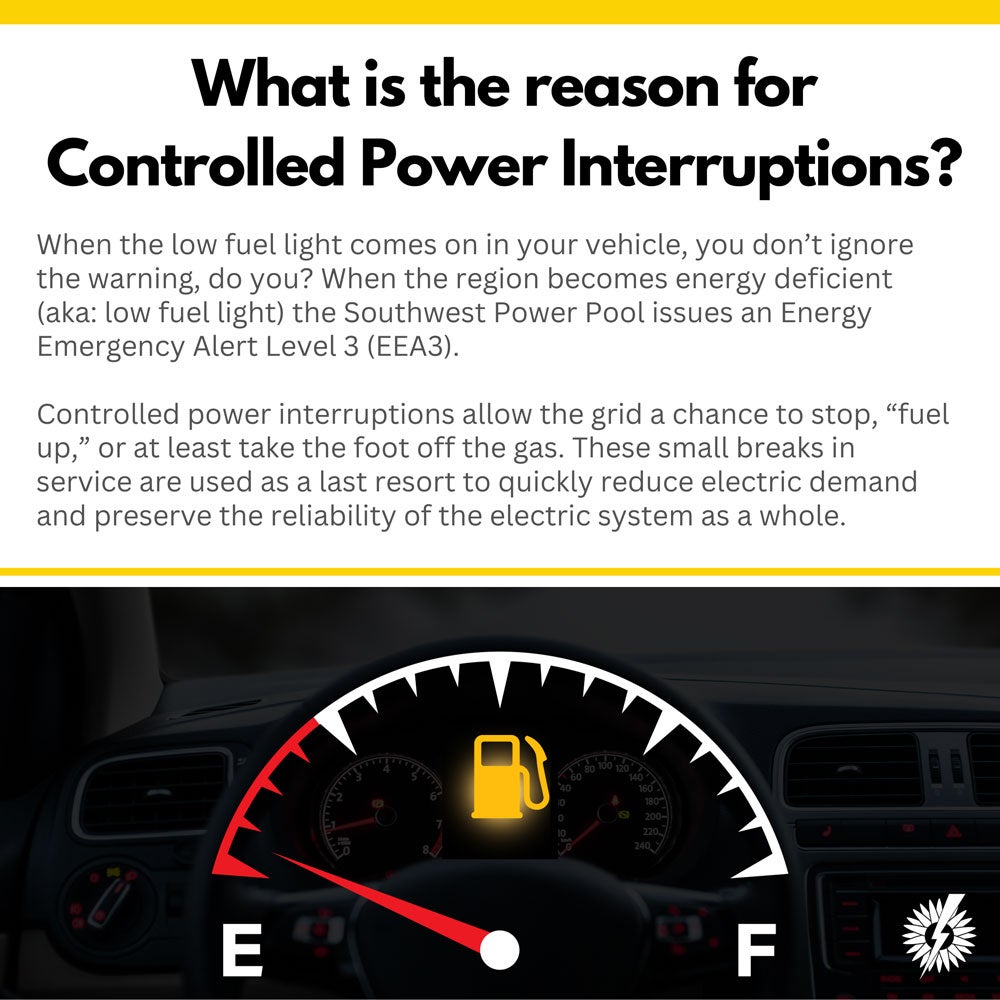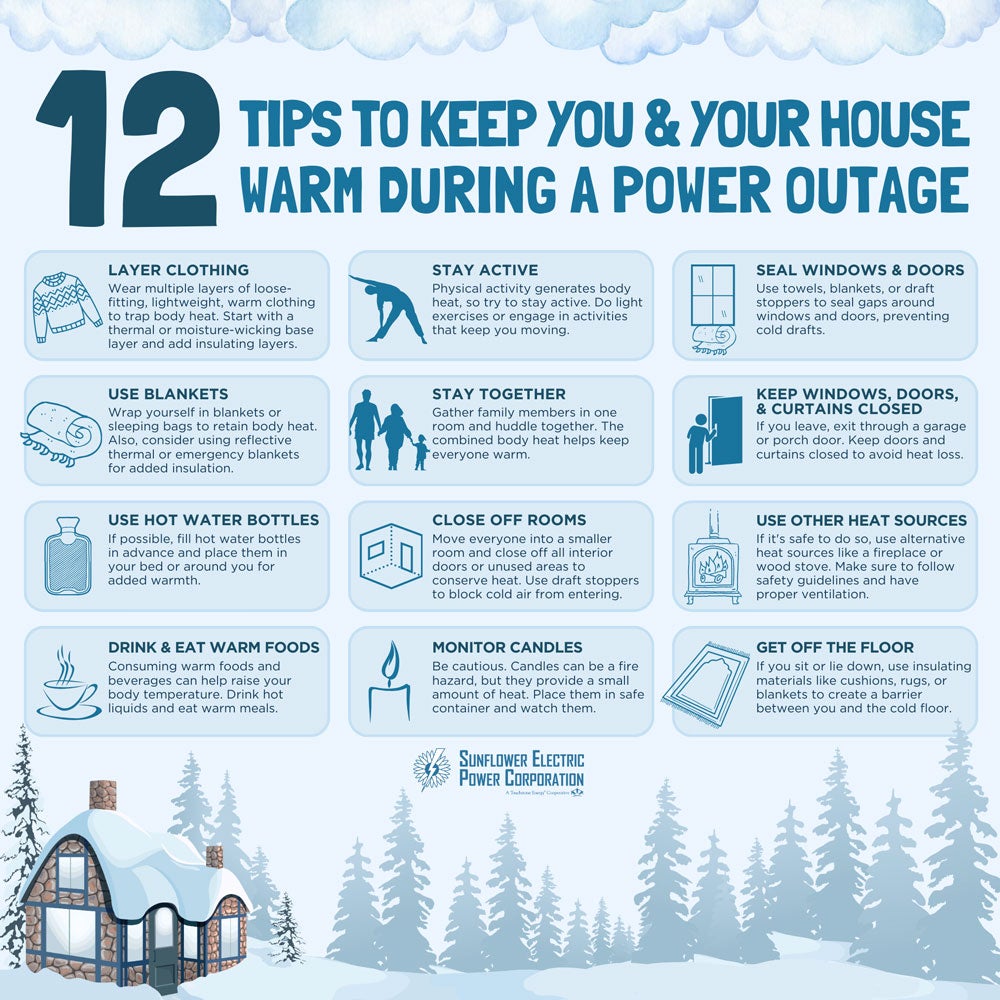
How to Conserve Energy for a Conservation Plea
Often when a conservation energy plea is issued by your cooperative, it is because weather conditions are causing intense strain on the electrical grid, there has been an emergency of some sort, or fuel shortages. The cooperative will issues a plea to its membership when they have been instructed to do so by the Southwest Power Pool, who is the energy balancing authority for a 14-state area. When energy demands exceed generation capacity and conditions exist that could lead the SPP to utilize operating reserves, SPP will issue a public appeal for conservation. The goal of this action is to reduce overall system load and keep it below region-wide total generating capacity.
If the situation would continue to become energy deficit, a Controlled Power Interruption, or Load Shed of electricity from the grid will be mandated. The electric utilities do not have control over when the load sheds will take place, or to whom will be shed. Sunflower Electric, Lane-Scott Electric's Generation & Transmission (G&T) provider will be instructed by the SPP to shed load, or de-energize substations across their territory. Sunflower does this in block increments so any one substation is not off for more than 2 hours. When Sunflower gets the order from SPP, they typically have about 10 minutes to shed the required amount of load.
Depending on the situation of the event, the escalation from a Conservation Plea to a Load Shed event can happen very quickly. If this is the case, a Load Shed may occur without a plea to our members to conserve energy.
A planned, controlled load shed outage helps balance the grid to prevent widespread uncontrolled outages.
Here are some helpful ways you can conserve energy.

In the winter:
-
Lower your thermostat, and program it for when you are not home or down when sleeping. It is recommended no higher than 68F, or to the lowest temperature you find comfortable.
-
Layer in warm clothes and blankets.
-
Let the sun in during the day and close the curtains at night.
-
Keep the air circulating. In the winter turn your fan clockwise, producing an updraft and moving the warm air that collects near your ceiling down into the rest of the room.
In the summer:
-
Set your thermostat as high as comfortable or turn off your Air Conditioning . Set your thermostat to 78 degrees or higher, if health permits.
-
Close blinds and curtains during the hottest part of the day.
-
Don't use your oven. Instead grill outside or use alternative cooking gadgets such as air fryers or electric skillets.
-
Turn your ceiling fan on in occupied rooms and off when unoccupied.
Anytime
-
Turn your water heater thermostat down. Most people have their hot water heater set way too high. A recommended 120 degrees is sufficient for most households.
-
Eliminate air leaks and drafts. Air sealing your home is simple, effective, and relatively inexpensive with caulking and weather stripping. In emergency situations, put towels around leaky doors and windows.
-
External doors are a trouble spot for drafts. Check the weather stripping and seals around the door frame and replace any damaged or missing weather stripping and apply new caulk to any broken seals.
-
Close doors and vents in unused rooms.
-
Reduce ghost electricity. Ghost electricity is electricity that is being used just from being plugged in. Unplug coffee makers, appliances (that don't need cooled or heated constantly), and cell phone chargers. You can use power strips for multiple appliances, and turn off the main switch to shut off large electricity users such as entertainment centers or video consoles. Don't forget about what's plugged-in in your shop or garage!
-
Change or clean air filters. A clean air filter on your furnace can lower your energy consumption by 5 to 15%. Dirty filters cost more to use and overwork the system.
-
Avoid using major appliances. Electric appliances use a large amount of electricity. Avoid using them, or use them during off-peak hours.
